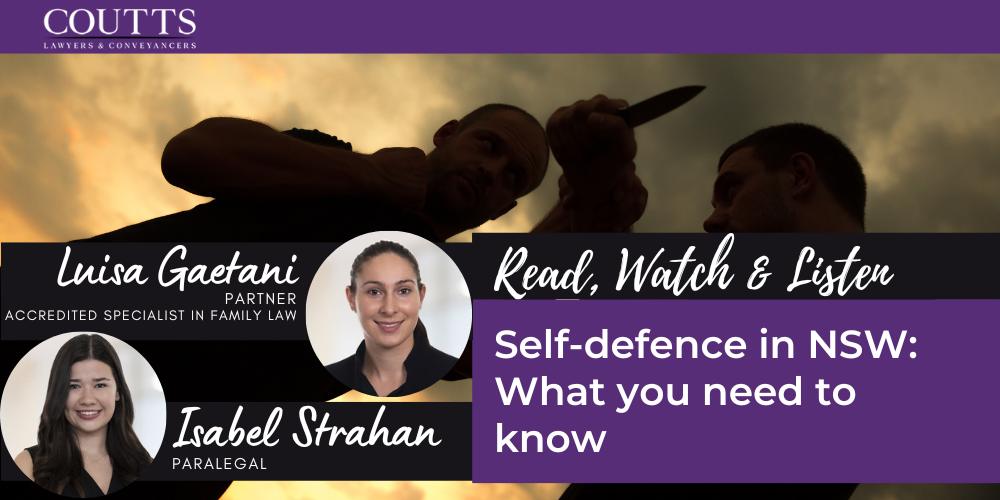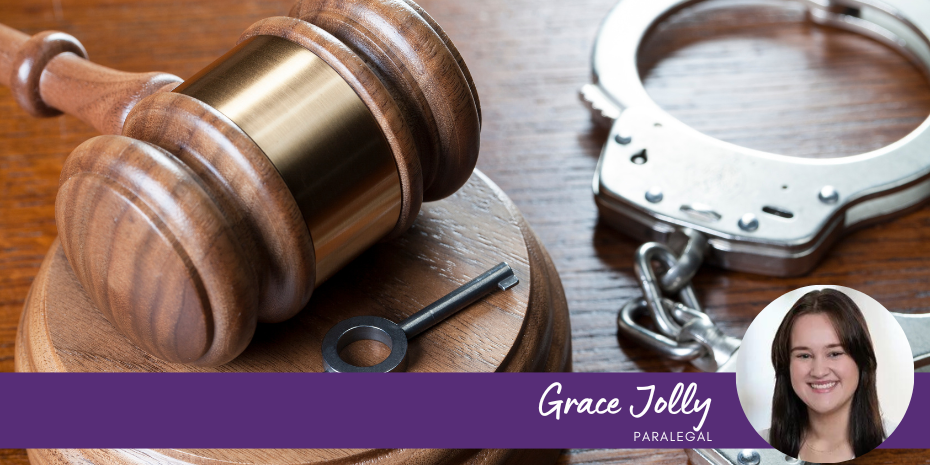KEY TAKE-OUTS:
- Self-defence involves a reasonable use of force in proportion to the threat faced.
- If someone has applied excessive force, the defence will unlikely be available.
- After the defence is raised, the onus lies on the Prosecution to prove beyond reasonable doubt that the accused response was not reasonable or that their conduct was not necessary within the circumstances.
Self-defence has notoriously been used in TV shows and legal soap operas for decades. However, within the New South Wales legal system, self-defence behaves differently than what is dramatised in television. Notably, the extent to which physical force can be used in self-defence depends on the circumstances and the extent of the threat faced by the accused.
Section 148 of the Crimes Act 1900 states that a person is not criminally responsible if the person has acted in self-defence. This is further categorised into situations where the person believes that their actions are necessary to:
- Defend themselves or another person,
- Prevent or end the unlawful deprivation of liberty,
- Protect property, or
- Prevent criminal trespassing.
In addition, the conduct that amounts to self-defence must be considered a reasonable response to the circumstances as the person perceives it, at the time of the offence.
In practice, raising the defence does not mean that the person did not do the conduct i.e. apply physical force, it simply acknowledges that the conduct was reasonable in regard to the threat that was faced.
A classic example of self-defence is where two people are involved in a verbal argument and one person raises their fist. If the person is fearful that they may be hit and pushes the other person away, self-defence may be made available to them.
What the Court will Consider?
Self-defence is a two-limbed test in New South Wales, meaning that both tests must be satisfied in order for the defence to be made available.
The first limb is a subjective test. At this stage, the Court will assess the personal characteristics of the accused at the time of the offence. For example, the Court will take into consideration the accused age, height, weight, gender, state of mind, health and whether they were intoxicated. This is to make an assessment as to whether the accused conduct was necessary in the circumstances.
Once the Court has completed the subjective test, they will objectively test the reasonability and proportionality of the conduct. In doing so, they will assess the accused conduct and decide whether the accused actions were reasonable in proportion to the real risk that the threat posed to the accused.
A person that is faced with a threat is not expected to weigh the exact measurement of force that is deemed appropriate, especially not at the heated time that the threat occurred. The law allows for a person to use force that is proportionate to the threat being faced. Therefore, the Court does not expect the accused to use hindsight, however, assumes that the response will be rational. For example, if someone punches another person, it would not be considered reasonable to stab the other. In these circumstances, self-defence would not be available.
Who Bears the Onus of Proof?
In criminal law proceedings, if a person wishes to rely on self-defence, they or their legal representative must raise it on the balance of probabilities. This differs from the standard of proof of regular criminal proceedings; being beyond reasonable doubt. In raising self-defence, the Judge, Magistrate, or jury (dependent on what Court the matter is being heard in) must be satisfied that it is more than likely that the person was acting in self-defence and the above-mentioned elements are more than likely to be proven.
Once the defence has been raised, it is up to the prosecution to negate it. In order to do so, they must show that the accused did not genuinely believe that their conduct was necessary OR they must prove that the conduct was not a reasonable response in comparison to the threat that was being faced. The prosecution must prove these elements to the higher standard of beyond reasonable doubt.
What is Excessive Self-Defence?
Although self-defence can be raised, it does not protect the excessive use of force. This means that under section 421 of the Crimes Act 1900, if a person uses force and it results in the death of another, it is not considered to be a reasonable response and, in instances where the conduct was to protect property or prevent trespass, it will not be a complete defence.
This means that if there is an intruder in your home and you defend it – causing the death of the intruder, you will not have a complete defence and you will likely be found to be guilty of manslaughter.
Conclusion
It must be noted that simply raising the defence of self-defence is not a guarantee that an individual will be found not guilty. The above-mentioned statutory requirements of proving this defence and the complex procedure in raising defences require experience, skill, and knowledge of the Courts processes and procedures. The Criminal Law Team at Coutts is well-equipped to assist you in deciding whether this defence is available to you and dedicated to helping you navigate the justice system.
ABOUT LUISA GAETANI:
Luisa is a Partner at Coutts Lawyers & Conveyancers and head of our Family and Criminal Law divisions. Since being admitted in 2014, Luisa has practiced solely in the areas of criminal and family law. It is her sensitive yet pragmatic approach that has allowed her to develop a strong rapport and build trusting relationships with her clients. Should a client’s matter proceed to court, Luisa has the skillset and experience to assist her clients through this process and where required, will draw upon her network of barristers to further benefit her client’s outcomes.
For further information please don’t hesitate to contact:
Luisa Gaetani
Partner
Accredited Specialist in Family Law
luisa@couttslegal.com.au
1300 268 887
ABOUT ISABEL STRAHAN:

Isabel joined the Coutts team in January 2022, as a Paralegal working within our Family & Criminal teams. She is currently studying a Bachelor of Laws and Bachelor of Arts, Majoring in International Relations and Minoring in Cultural Studies at the University of Wollongong. It is her dedication and hardworking nature that will see her go far within Coutts.
For further information please don’t hesitate to contact:
Isabel Strahan
Paralegal
info@couttslegal.com.au
1300 268 887
Contact Coutts today.
This blog is merely general and non-specific information on the subject matter and is not and should not be considered or relied on as legal advice. Coutts is not responsible for any cost, expense, loss or liability whatsoever to this blog, including all or any reliance on this blog or use or application of this blog by you.




